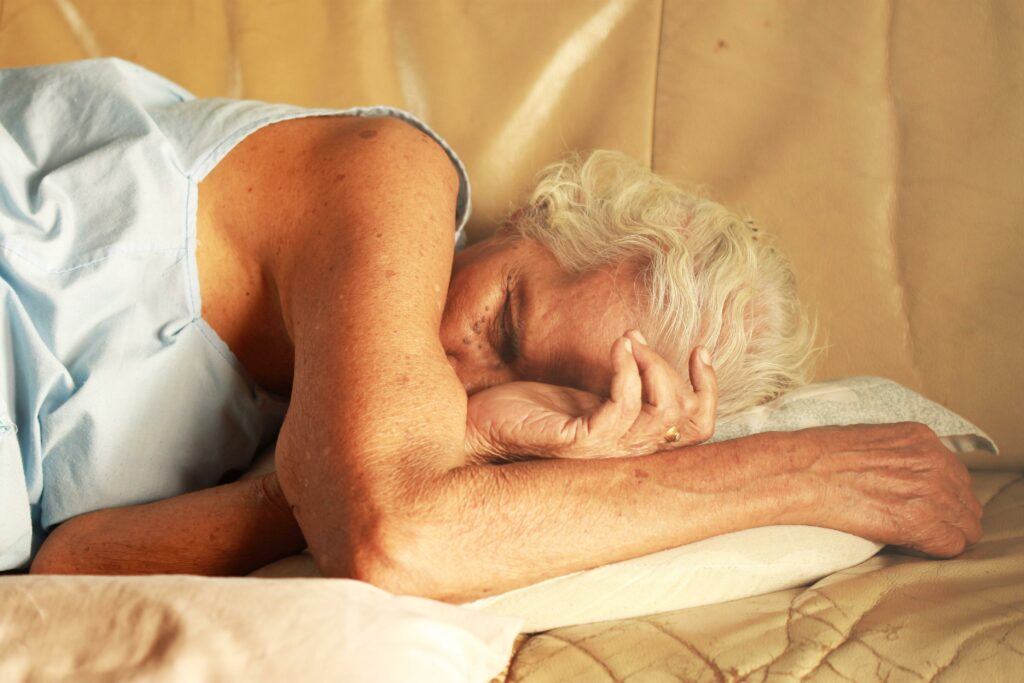Everyone enjoys a good nap now and then. As we age, we may take advantage of those naps more often. With this in mind, it’s essential to understand the impacts of napping on the aging senior. So, let’s look at the dos and don’ts of napping.
Why Are Seniors Napping?
Well, they are tired. Right? Well, yes and no. There are several contributing factors to why seniors may find themselves napping more. Poor sleep quality can cause seniors to feel tired during the day. Chronic pain, nighttime urination, insomnia, and sleep apnea are a few of those causes that make getting quality sleep difficult for seniors.
Often people think that the older you get, the less sleep you need. However, that claim is not valid! The National Sleep Foundation advises that people over 65 should get seven to eight hours of sleep each night. Furthermore, depression, medication issues, changes in circadian rhythm, dementia, and flat-out boredom can cause seniors to snooze during the day.

The Impacts of Napping
While seniors may think naps will help them catch up on the sleep they are missing during the evenings, they should try to rectify the issues that plague their sleep quality. Napping during the day, especially when done in excess, can further disrupt seniors’ ability to sleep well during the night. Furthermore, some studies have shown that excess napping is associated with seniors’ increased risk for dementia and Alzheimer’s. It’s a good idea to discuss Increases in daytime napping with your physician to determine causes and solutions.
Napping Dos & Don’ts
- DO Consume More Vitamin C! You may not realize it, but vitamin C is an excellent addition to your diet and sleep. Vitamin C helps increase your sleep duration and relieves movement disorders like restless leg syndrome.
- DON’T Forget To Exercise! Participating in regular exercise can help you fall asleep faster before bed. It can also help alleviate the sleepiness you encounter during the day.
- DO Nap Between 12 – 3 p.m. Napping any time after 3 p.m. can interrupt your circadian rhythm and make it difficult for you to fall asleep at bedtime. Any time between 12 – 3 p.m. is ideal for taking a quick nap.
- DON’T Nap Longer Than 20 Minutes. You risk dropping into deeper sleep stages if you sleep longer than 20 minutes. Furthermore, extended napping can cause you to feel worse than when you initially went to sleep.
- DO Give Yourself Time To Wake Up. Have something important to do after your nap that requires focus? Make sure you have enough time to wake up before proceeding with your activities, especially if the activity is getting behind the wheel or cooking a meal.
- DON’T Use A Nap To Substitute Actual Sleep. Do not rely on napping to get enough rest. It’s essential to make changes to help you sleep better at night. Naps are not a good substitute for sleeping seven to eight hours.
- DO Keep A Good Bedtime Routine. A consistent bedtime routine can help signal your brain that it is time to sleep. Do things like going to bed at the same time, and avoid using electronics before bed. Taking a bath, meditating, or having a nice cup of bedtime tea can help you relax.
While naps can help you get some rest, regulating your sleep schedule is essential. If you are having issues getting enough sleep at night, you must talk with your physician about what may be causing it.

